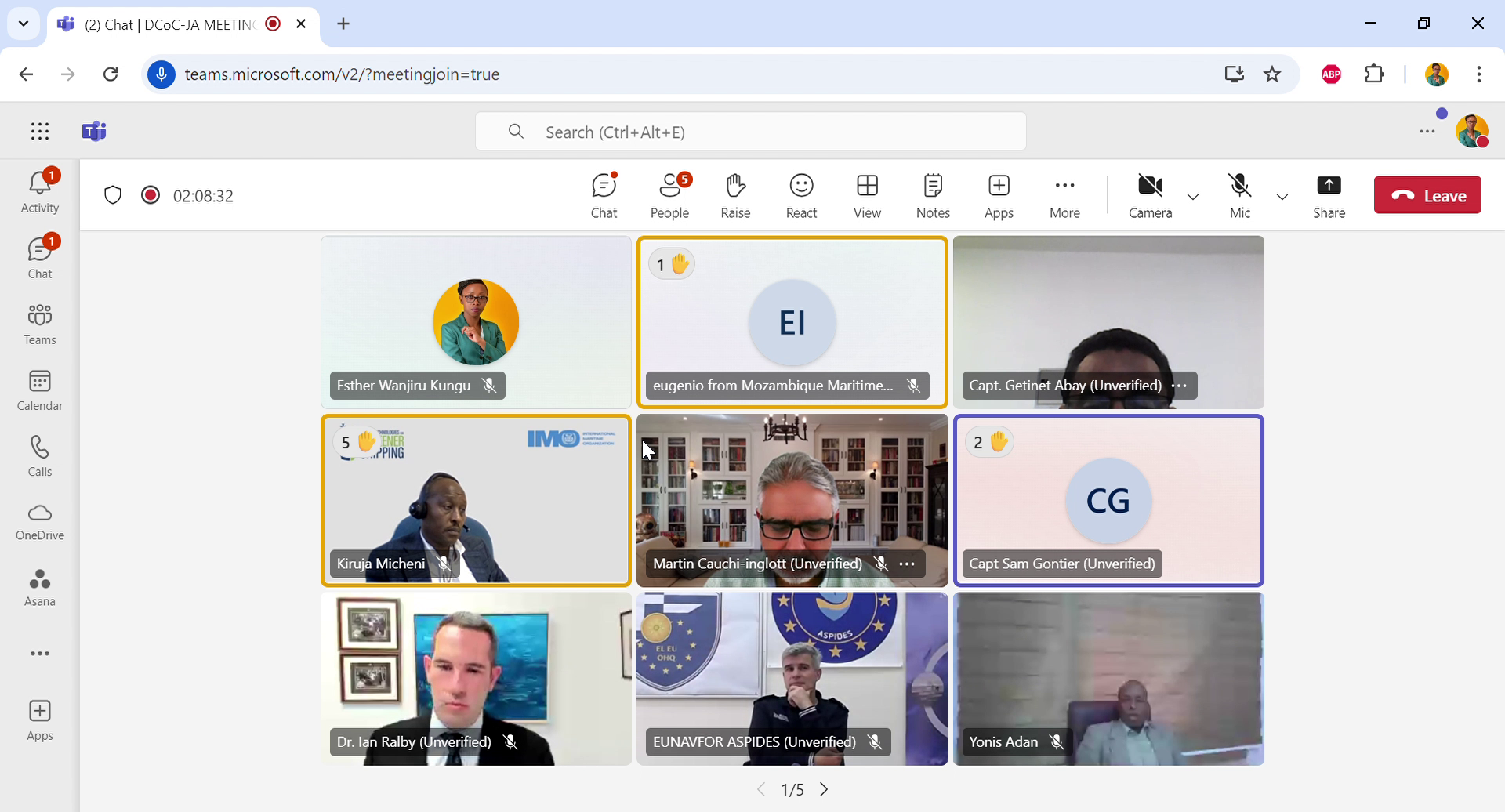Regional States push for oil spill preparedness plan after MV Sounion attack
Collaboration and cooperation for oil spill preparedness and response is being considered to prevent an imminent ecological disaster threatening navigation security and coastal communities in the western Indian Ocean and Gulf of Aden.

Intensified attacks on the MV Sounion in the Red Sea prompted Signatory States of the Jeddah Amendment to the Djibouti Code of Conduct, to convene a virtual meeting with regional and international stakeholders in the maritime industry (28 August) to discuss a coordinated response to mitigate the possible environmental, humanitarian, economic and health effects that would result from an oil spill.
According to the Greek shipping ministry and the United Kingdom Maritime Trade Operations (UKMTO) the oil tanker was hit by multiple projectiles off Yemen’s port city of Hudaydah, while transiting the Gulf of Oman. It is carrying more than 150,000 tonnes – or one million barrels – of crude oil which poses enormous risk to lives, coastal economics and the security of navigation, in an already strained waterway.
The European Union’s naval mission evacuated 25 crew members (two Russians and 23 Filipinos) to Djibouti.
Regional states were urged to share with the Regional Coordination Operations Centre Seychelles, updated lists with points of contact on oil spill response and related equipment, to enable capability mapping, classify available resources and to identify the required technical support.
“There is also urgent need of an oil spill management software in the region” said RCoC Director, Captain Sam Gontier. This will support early detection, containment and cleanup in the event of an oil spill.
Signatory States suggested involving Oman as a facilitator for regional dialogue regarding the salvage operation, as well as Egypt, given the significant impact on its national trade since the attacks on international shipping began. Currently, ships avoiding the Red Sea are redirecting their voyages around the Cape of Good Hope.
“I am grateful to all those involved in the rescue efforts for ensuring the seafarers have now all been safely evacuated” said Mr. Arsenio Dominguez in a press statement released on the International Maritime Organization website on Wednesday.
Iran’s Mission to the United Nations in New York said on Wednesday that several countries had reached out to the Houthis, who agreed to a truce letting salvors reach the damaged oil tanker. The Houthis, who control a large portion of Yemen, began launching attacks on international shipping in November 2023.
To read more, click on the report attached here

